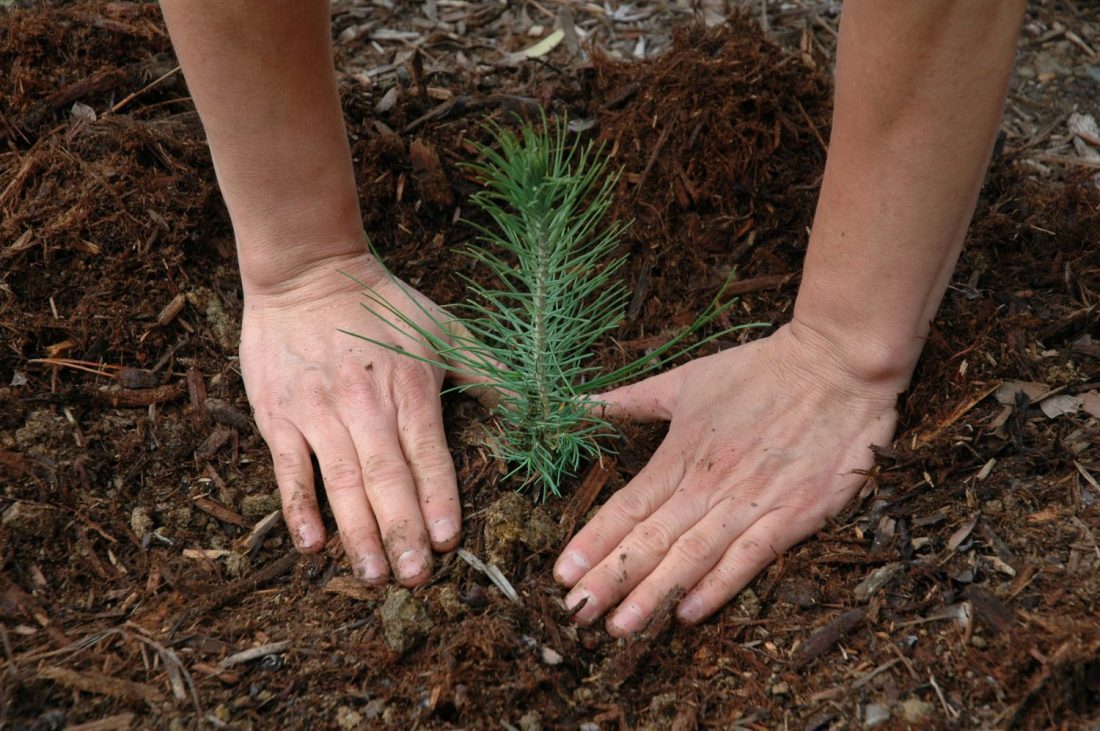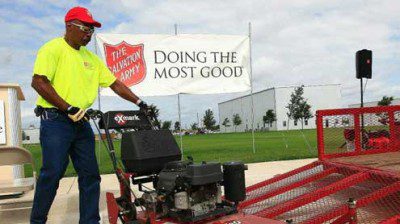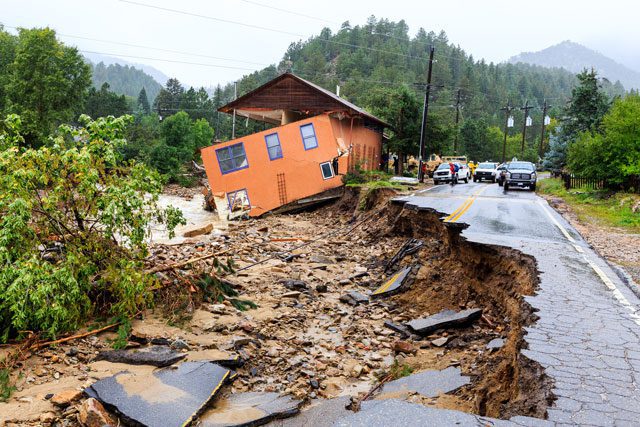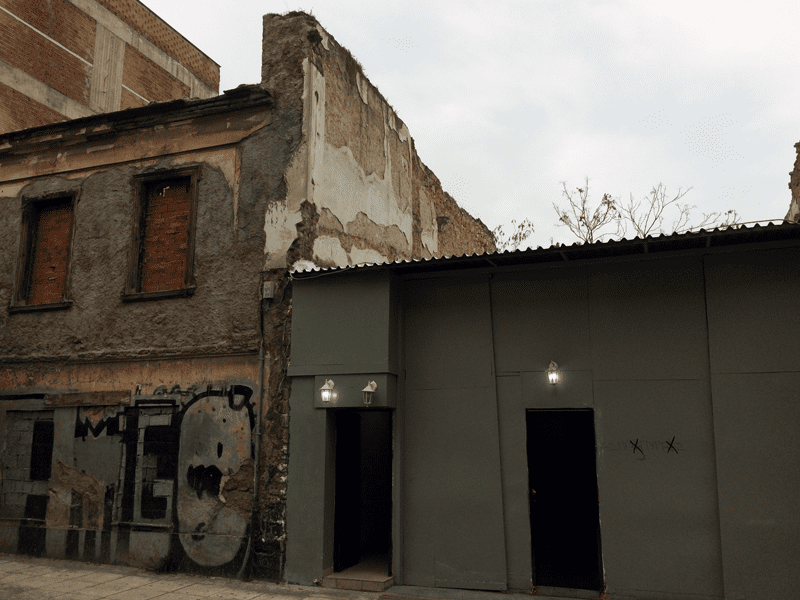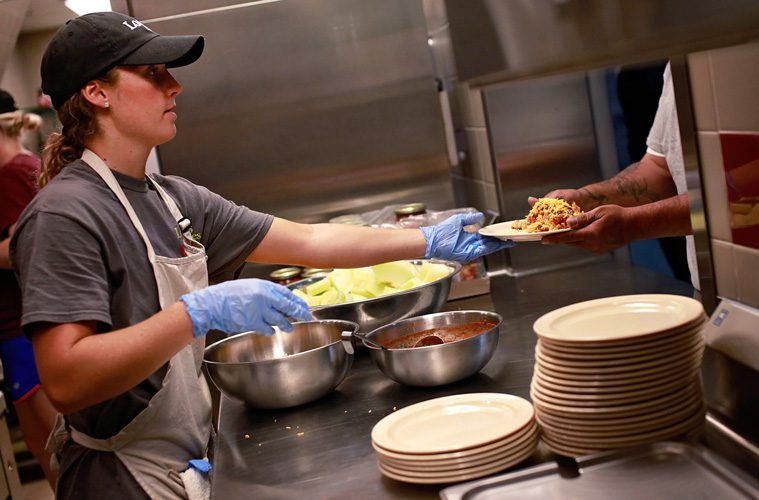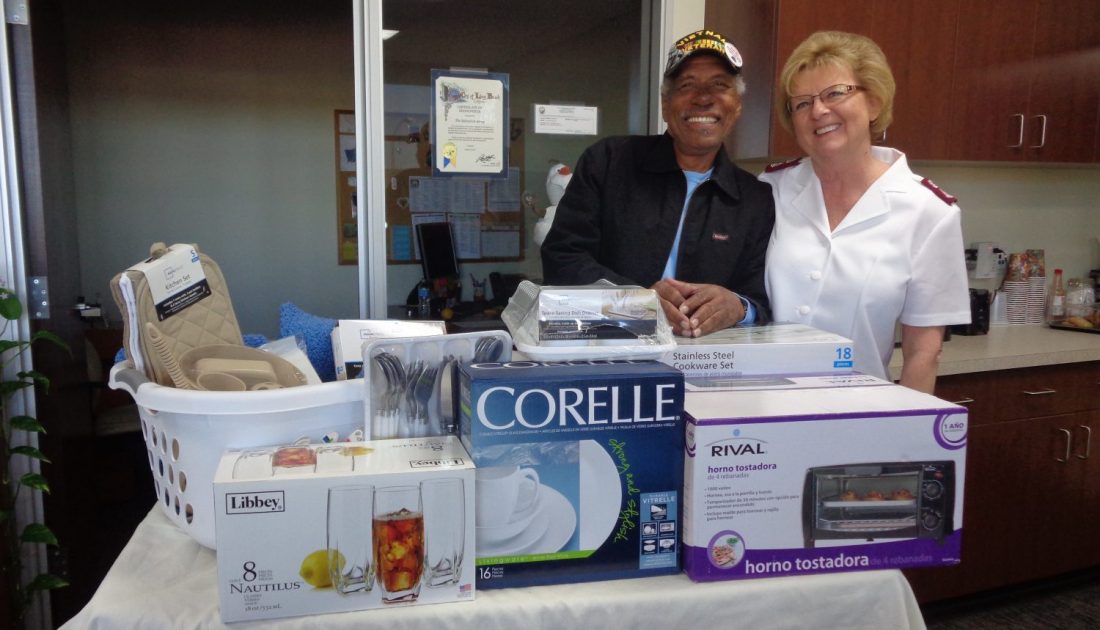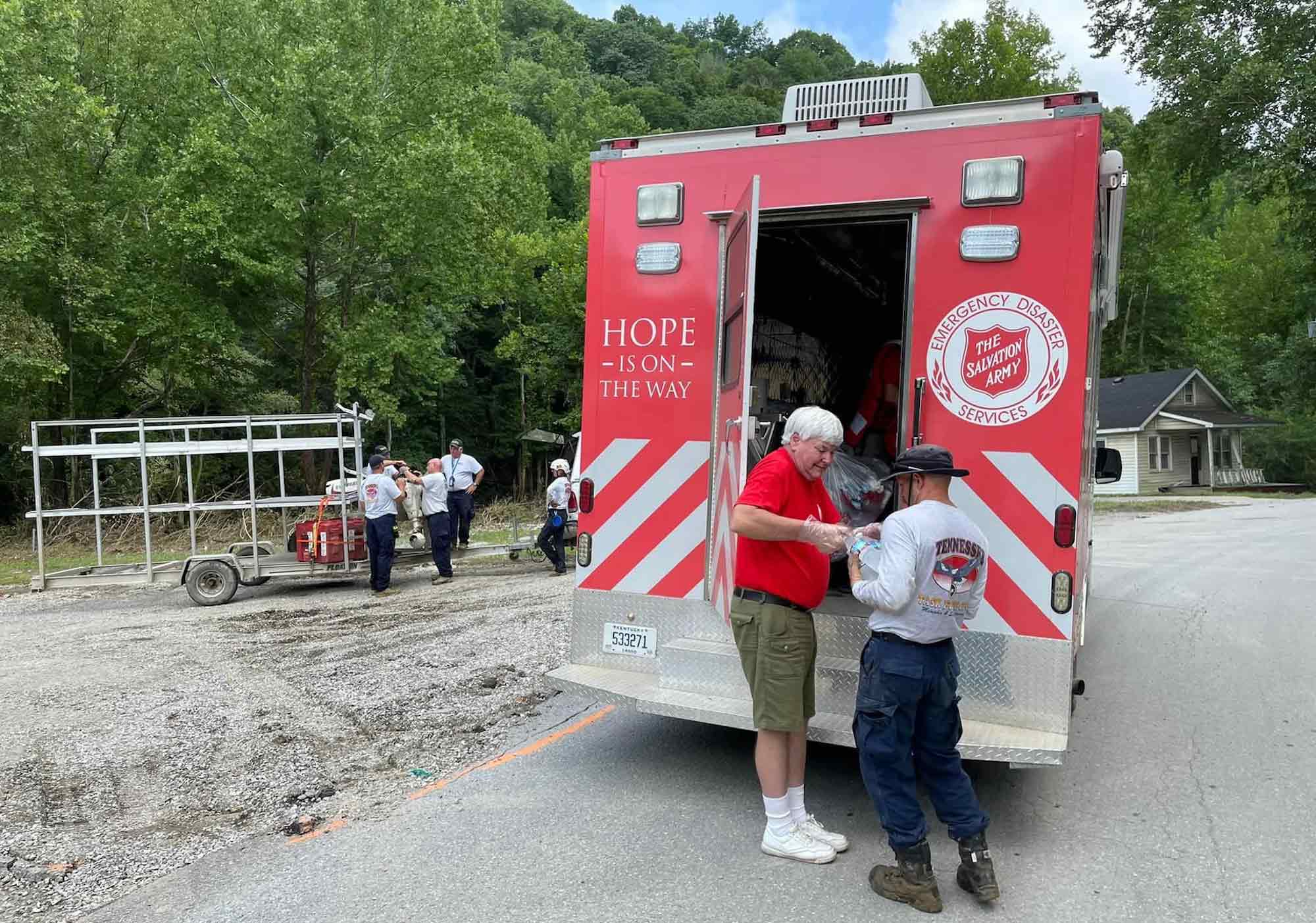Listen to this article
Listen to this article
Loading
Play
Pause
Options
0:00
-:--
1x
Playback Speed- 0.5
- 0.6
- 0.7
- 0.8
- 0.9
- 1
- 1.1
- 1.2
- 1.3
- 1.5
- 2
Audio Language
- English
- French
- German
- Italian
- Spanish
Open text
back in business. jerry ernst was sitting pretty, making a cool $140,000 a year in retail management. all the while, he was battling an addiction to methamphetamines. eventually, his addiction caught up with him and landed him in prison. ernst is now 46 and out of prison. the six-figure salary is gone. he’s living in a homeless shelter, making a fraction of what he used to. and that’s okay with him. because for the first time in his life, he’s working full time while staying sober, something he credits to socially responsible landscape management––an initiative launched by the salvation army in dallas. in 2010, the salvation army dallas-fort worth metroplex command discovered it was spending a substantial amount of money on paying an outside contractor to maintain its own properties. donnie freeman, social enterprise manager for the command, opted to start an in-house landscape management company, using workers hired from the nearby carr p. collins social service center. some of these men were recovering from addiction, some were veterans, but all were homeless, unemployed and hard-pressed to find work elsewhere. “the workers are overcoming many barriers to employment, including the very fact that they are homeless,” freeman said. “some have had issues with drug and alcohol abuse, and even though they’ve completed treatment, the stigma remains.”. freeman brought on burton niles, an experienced landscaper and irrigator, to train each employee in lawn and plant care, proper equipment usage, safety and irrigation. niles organized two crews of 12 workers, and with donations from local advisory board members, aims to springboard the employees into other full-time work. “by working on a landscaping crew and proving they are reliable, they become eligible to receive letters of recommendation and assistance in attaining full-time employment,” freeman said. ernst, who has worked as an account generator for socially responsible landscape management since october 2013, said the program has allowed him to ease back into the workforce at a pace he’s comfortable with. “i’ve had great responsibilities in my life,” he said. “i can’t get back into that right now. i need to do something that i can feel good about that still makes me a little bit of money but i need to work a different pace and focus on what’s important, which is my recovery.”. while the salvation army understands he is in a substance abuse recovery program, he said they still hold him accountable to his duties. “most employers don’t have much of a tolerance for the [recovery] program,” ernst said. “i still have meetings that i need to go to to address my addiction. they are flexible, yet there are responsibilities and deadlines and things that need to be done. donnie freeman and the salvation army have created a wonderful balance where i can come back into mainstream society without the immediate pressures of the world.”. in april 2013, the program gained permission to carry out work for entities other than the salvation army. the company has since increased its workload to maintaining 55 properties, including 16 commercial properties. one of the crews recently landscaped, designed and installed a complete irrigation system for the salvation army’s christmas and disaster warehouse. since the business started, 12 men, including kevin kirby, have left to go into other full-time work. “when i got out of jail, i didn’t have any money,” kirby said. “i didn’t have any money until i went to the salvation army and went through that program. in those three months i was in the program, i was able to do what i needed to do once i got out. if i could’ve worked more hours i would have.”. after working just three months in the program, kirby dropped off his updated resume and a letter of recommendation from freeman to a few employers. he had more offers than he knew what to do with. “i had to decide which one i was going to work for.” kirby accepted a position with final touch landscaping services, where he’ll soon be leading his own crew. “i’m still in contact with [the salvation army] today, thanking them for what they did for me,” he said. gregg errera, an air force veteran and former cocaine addict, got connected to the program after rehabbing atthe salvation army dallas adult rehabilitation center. he has since been hired as the building maintenance coordinator of the nearby oakcrest corps. “i was able to get a car, a phone and find a place to live, and i made the contacts to where i could get this job,” errera said. “you ought to come and take a look at my corps down here; it looks good.”. freeman said he plans to expand the business into other ventures outside of landscaping this spring. eventually, he hopes to be able to employ four crews of men, accounting for a total of 27 jobs. he said, “there is nothing more rewarding than being able to offer a man a job when he had all but given up hope.”. [button color=”white” size=”normal” alignment=”none” rel=”follow” openin=”samewindow” url=”salvationarmydfw.org”]connect with the salvation army in dallas[/button].
Open context player
Close context player
Plays:-Audio plays count
back in business. jerry ernst was sitting pretty, making a cool $140,000 a year in retail management. all the while, he was battling an addiction to methamphetamines. eventually, his addiction caught up with him and landed him in prison. ernst is now 46 and out of prison. the six-figure salary is gone. he’s living in a homeless shelter, making a fraction of what he used to. and that’s okay with him. because for the first time in his life, he’s working full time while staying sober, something he credits to socially responsible landscape management––an initiative launched by the salvation army in dallas. in 2010, the salvation army dallas-fort worth metroplex command discovered it was spending a substantial amount of money on paying an outside contractor to maintain its own properties. donnie freeman, social enterprise manager for the command, opted to start an in-house landscape management company, using workers hired from the nearby carr p. collins social service center. some of these men were recovering from addiction, some were veterans, but all were homeless, unemployed and hard-pressed to find work elsewhere. “the workers are overcoming many barriers to employment, including the very fact that they are homeless,” freeman said. “some have had issues with drug and alcohol abuse, and even though they’ve completed treatment, the stigma remains.”. freeman brought on burton niles, an experienced landscaper and irrigator, to train each employee in lawn and plant care, proper equipment usage, safety and irrigation. niles organized two crews of 12 workers, and with donations from local advisory board members, aims to springboard the employees into other full-time work. “by working on a landscaping crew and proving they are reliable, they become eligible to receive letters of recommendation and assistance in attaining full-time employment,” freeman said. ernst, who has worked as an account generator for socially responsible landscape management since october 2013, said the program has allowed him to ease back into the workforce at a pace he’s comfortable with. “i’ve had great responsibilities in my life,” he said. “i can’t get back into that right now. i need to do something that i can feel good about that still makes me a little bit of money but i need to work a different pace and focus on what’s important, which is my recovery.”. while the salvation army understands he is in a substance abuse recovery program, he said they still hold him accountable to his duties. “most employers don’t have much of a tolerance for the [recovery] program,” ernst said. “i still have meetings that i need to go to to address my addiction. they are flexible, yet there are responsibilities and deadlines and things that need to be done. donnie freeman and the salvation army have created a wonderful balance where i can come back into mainstream society without the immediate pressures of the world.”. in april 2013, the program gained permission to carry out work for entities other than the salvation army. the company has since increased its workload to maintaining 55 properties, including 16 commercial properties. one of the crews recently landscaped, designed and installed a complete irrigation system for the salvation army’s christmas and disaster warehouse. since the business started, 12 men, including kevin kirby, have left to go into other full-time work. “when i got out of jail, i didn’t have any money,” kirby said. “i didn’t have any money until i went to the salvation army and went through that program. in those three months i was in the program, i was able to do what i needed to do once i got out. if i could’ve worked more hours i would have.”. after working just three months in the program, kirby dropped off his updated resume and a letter of recommendation from freeman to a few employers. he had more offers than he knew what to do with. “i had to decide which one i was going to work for.” kirby accepted a position with final touch landscaping services, where he’ll soon be leading his own crew. “i’m still in contact with [the salvation army] today, thanking them for what they did for me,” he said. gregg errera, an air force veteran and former cocaine addict, got connected to the program after rehabbing atthe salvation army dallas adult rehabilitation center. he has since been hired as the building maintenance coordinator of the nearby oakcrest corps. “i was able to get a car, a phone and find a place to live, and i made the contacts to where i could get this job,” errera said. “you ought to come and take a look at my corps down here; it looks good.”. freeman said he plans to expand the business into other ventures outside of landscaping this spring. eventually, he hopes to be able to employ four crews of men, accounting for a total of 27 jobs. he said, “there is nothing more rewarding than being able to offer a man a job when he had all but given up hope.”. [button color=”white” size=”normal” alignment=”none” rel=”follow” openin=”samewindow” url=”salvationarmydfw.org”]connect with the salvation army in dallas[/button].
Listen to this article











